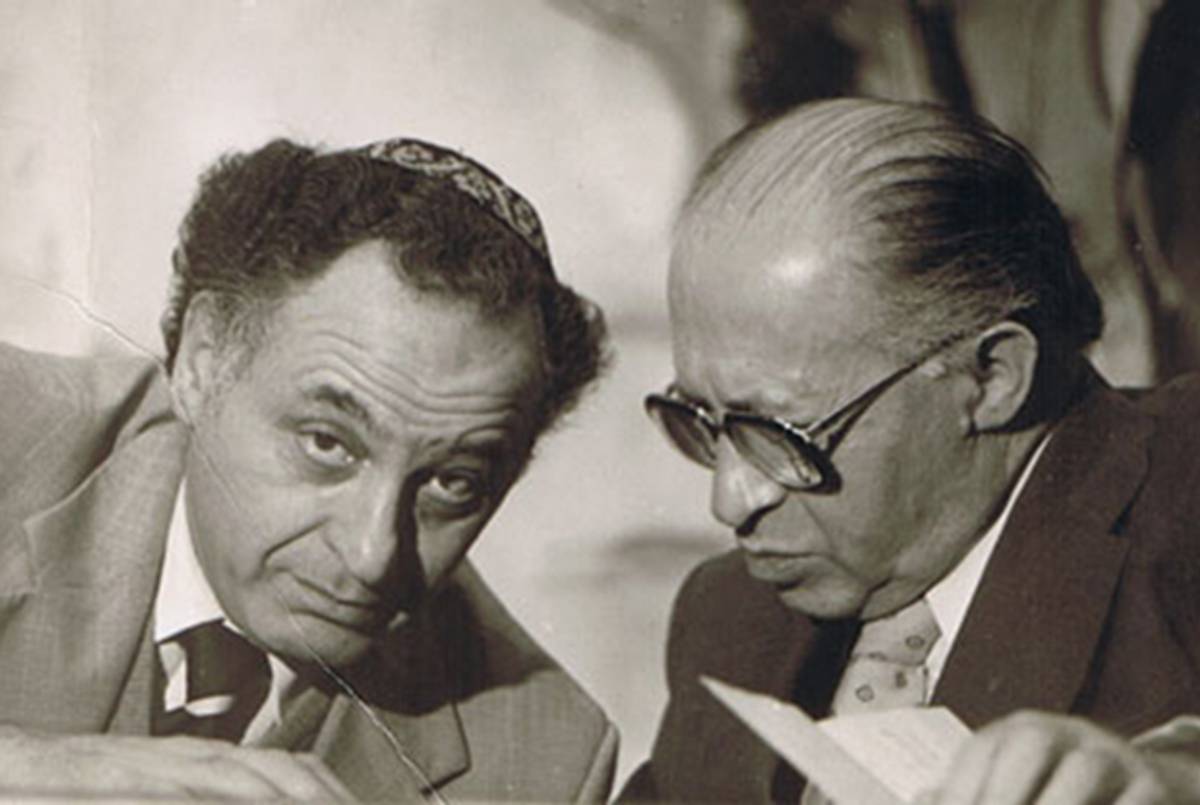
On Tuesday, Yehuda Avner, an iconic Israeli ambassador and witness to so much of the Jewish state’s history, died at the age of 86. Among other distinguished roles, the Manchester-born Avner served as an adviser and English speechwriter for Prime Ministers Levi Eshkol, Golda Meir, Menachem Begin, and Yitzhak Rabin, as well as Israel’s ambassador to Australia, Britain, and Ireland. Tributes following his death have dubbed him “Begin’s Shakespeare,” and highlighted his eloquence in conveying Israel’s story throughout his career as a diplomat, speechwriter, and historian. (Here’s just one example of Avner’s singular storytelling style from the Tablet archives.)
Yet for all his fabled command of rhetoric, Avner’s most poignant speech was arguably his worst–and first. In his memoir, Avner recounted the very first address he was tasked to write for Prime Minister Levi Eshkol. It was for a Joint Israel Appeal dinner in London’s West End, and a nervous Avner heavily overdid the text. Eskhol was too busy meeting with U.K. Prime Minister Harold Wilson, among other dignitaries, to look over the complete draft, which meant that the first time he saw it in full was when he delivered it. In his book, Avner described what happened next:
People rose and applauded elatedly as Levi Eshkol entered the banqueting hall. Every seat was taken. So many black-ties and extravagant dresses! So many excited and grinning faces! So many cries of euphoria!
I took my seat at a reserved table up front while the prime minister was escorted to a dais, flanked left and right by big donors. After a long and flowery introduction by the banquet chairman, and upon the cue of a tailcoated master of ceremonies bearing a golden chain of office, I quickly handed over the speech and, gnawed by hang-wringing anxiety, watched the prime minister peer at it as if examining some piece of mumbo-jumbo.
In his rumbling accent, he began reading the text in fits and starts, his tongue twisting around wily consonants and tricky vowels in a hapless bid to anglicize his Yiddish diction, pausing frequently to double-check what he was saying. Soon enough he came to the paragraphs he had not yet had time to review, which spoke of the heavy drain on Israel’s national economy caused by the mass inflow of penniless and unskilled refugee immigrants.
After all, this was a fund-raising occasion.
Incredulity crept into the prime minister’s eyes and his voice trailed off in disbelief. Leaning across the podium, his eyes boring into mine, he called out in Hebrew, “What’s this supposed to mean?”
I cringed in mortification as audible rustlings, murmurings, titters, nods, and nudges spread from table to table.
“What I just said is not true,” declared Levi Eshkol to his baffled audience, without a trace of awkwardness. “The very opposite is the case.” And then, syntax be damned, he proceeded to elaborate how each new immigrant was not a burden but an indispensable asset to the future growth of Israel’s economy.
When he sat down he was greeted with a sprinkling of clapping that swelled incrementally into a crescendo. They gave him a standing ovation. They loved him. They loved his honesty, his authenticity, and his refreshing spontaneity. Face aglow, Levi Eshkol watched as they extracted their checkbooks, unscrewed their fountain pens, and upped their generosity abundantly.
The adoration done, Mr. Eshkol beckoned me over, and in a thin whisper, his nose almost touching mine, rasped, “Boychik, if you don’t stop writing your fancy-schmancy nonsense and start writing what I want to say in the way I want to say it, I’ll find somebody else who will.”
“Yes, Prime Minister,” I mumbled, eating a piece of humble pie I would spend a lifetime digesting.
This anecdote, like so many of Avner’s stories, gives genuine and humanizing insight into the early days of the Jewish state, and a time when it was still figuring out what it meant to be an actor on the global stage. But beyond this historical dimension, the story tells us something quite personal: the very fact that Avner included it his memoir testifies to the humility that characterized his career as a civil servant, never seeing himself as bigger than the cause or people he served.
The remarkable story of Israel’s creation is filled with many famous names, from Ben Gurion to Truman, whose contributions are deftly chronicled by numerous historians. But without the Yehuda Avners of the world, quietly toiling behind the scenes, the Zionist dream could never have reached fruition.
Previous: Israel’s Prime Ministers: Not Kosher?
Related: Premiership
Yair Rosenberg is a senior writer at Tablet. Subscribe to his newsletter, listen to his music, and follow him on Twitter and Facebook.